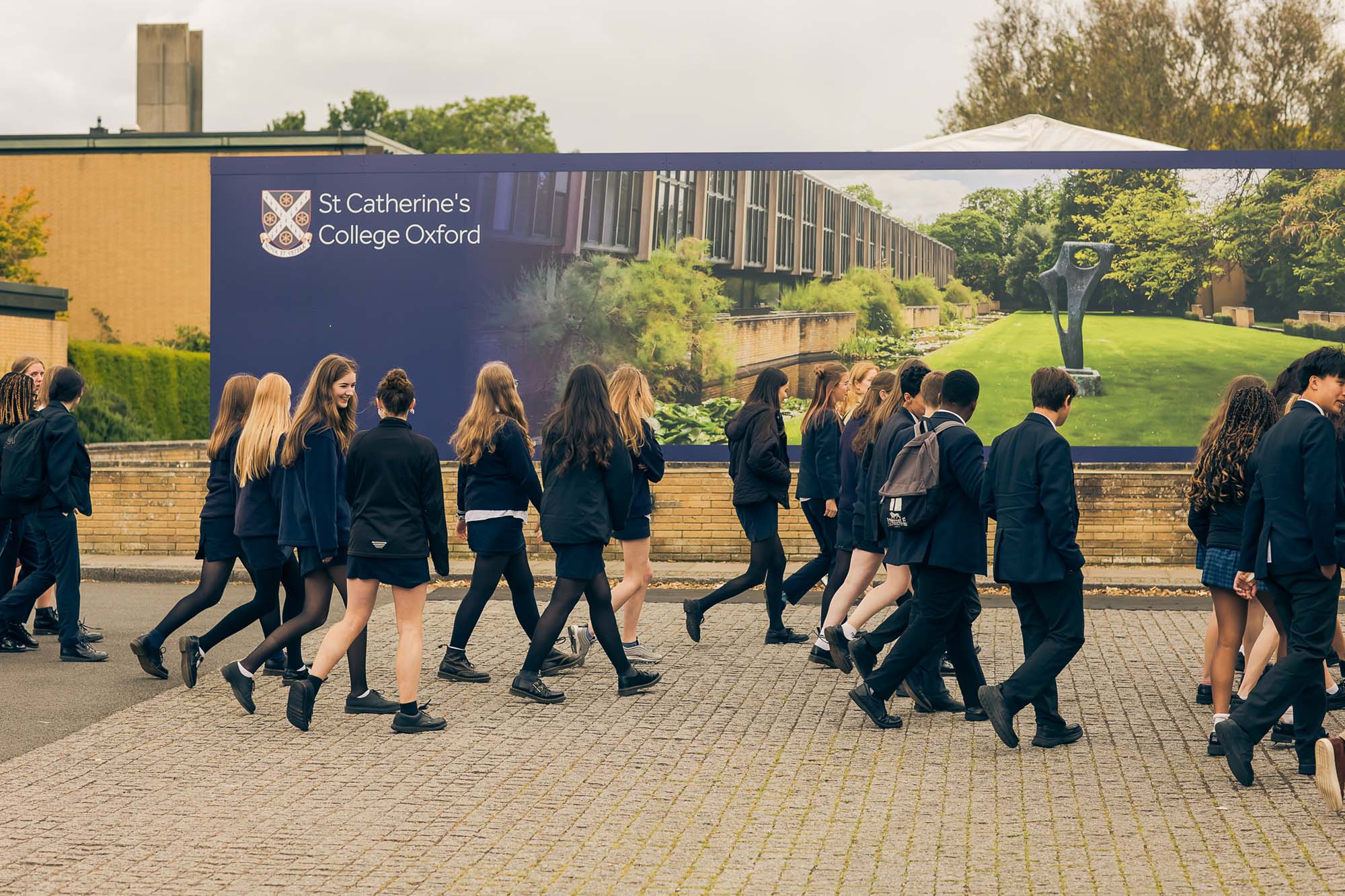
Words by Liz Lightfoot
Photography by Paul Read
It was a day of surprises for the excited teenagers from schools in south-east London as they took their first step towards Oxford’s world-famous university. A long coach journey had been an opportunity to get to know each other as the driver negotiated heavy traffic. Now came their first glimpse of the dreaming spires.
If they had expected nothing but medieval stone buildings, then their host college for the day – St Catherine’s, designed by Danish architect Arne Jacobsen in the 1960s – was their first surprise as they entered a modernist building of glass and concrete. The second surprise was the unexpected diversity of the Oxford undergraduates they met and the third was the small class tutorial system. Later, too, were the friendly well-being alpacas wandering near the University’s Radcliffe Camera library.
The annual visit to Oxford is part of the Catalyst programme, delivered by St Catherine’s College, an initiative designed to increase social mobility by widening higher education participation and encouraging students to aim high, especially those who would be the first in their family to attend university. It gives students the chance to find out about university courses and funding, before they have to make choices about Sixth Form and future careers.
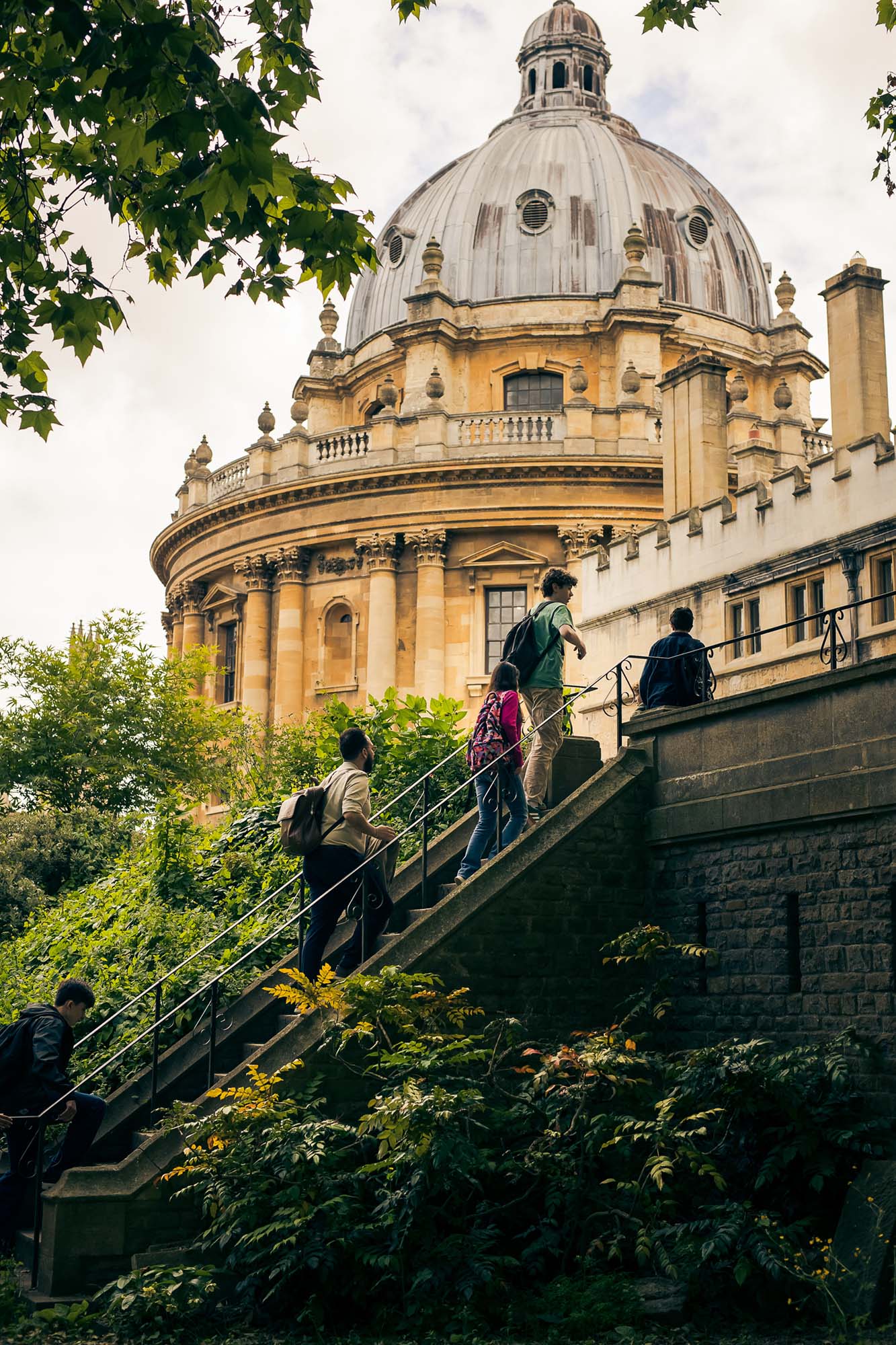 In the gardens of Exeter College with the Radcliffe Camera in view
In the gardens of Exeter College with the Radcliffe Camera in view
Origins of the Catalyst Programme
The Catalyst programme was formed in 2019 by St Catz, as the Oxford college is fondly known. In its beginnings, St Catz worked with Colfe’s School (which has been closely linked to the Leathersellers since the founder of the school, Abraham Colfe, entrusted it to the Company in the 17th Century) to develop the sustained contact programme that is now known as Catalyst. This partnership grew from a long tradition of Colfe’s bringing students from local state schools to visit St Catz for enrichment activities associated with progression to higher education.
The Catalyst Programme in 2025
Since 2019, the programme has grown, with seven local state secondary schools joining to form the Lewisham hub, the first of four groups of schools to partner with St Catz. Other hubs of schools in the Catalyst programme are found in London’s borough of Haringey, in South Wales and in Teesside.
Staff from St Catz visit the hubs to deliver workshops on higher education, then again for a session focused on A-level choice and student life before the students get to visit Oxford for an academic taster session, a tour of the College, and sessions with current undergraduates and admissions staff. Later on, the College re-visits the hubs to offer information and advice to sixth formers on university admissions.
But it’s not all about Oxford. “We talk about higher education generally and what might be a good fit for them, such as would they want to go to a campus university or a city university and what kind of clubs might they want to join,” explains Joanna Meacham, St Catz’s Outreach Officer. “We are starting early so the students don’t mentally close doors to what they want to do in their futures.”
 On a tour with student ambassador Sami in Old Quad
On a tour with student ambassador Sami in Old Quad
Colfe’s School and Social Mobility
Richard Russell, Colfe’s headteacher, is keen to build on the partnerships created through the Catalyst programme with local schools. “It is very important that Colfe’s students see themselves as grounded in the community,” he says.
“There is an inbuilt assumption at Colfe’s that if you are bright you will go to a top UK university – that’s part of the culture of the school – and given that most of the schools around here finish at 16 and don’t have Sixth Forms, it is really important they should be able to tap into that culture.”
“As far as our students are concerned, it can be beneficial for them to realise that, even if they are the brightest in their year at Colfe’s, there are students outside the seven per cent who can afford private education who are just as bright or brighter. That competition is healthy,” he adds.
The Leathersellers’ Foundation funds scholarships to provide places in the Colfe’s Sixth Form for economically disadvantaged young people, which helps the growth of a diverse and talented student community.
Beyond Catalyst, Colfe’s works closely with state schools in Lewisham and Greenwich so they can share their strengths through a range of joint initiatives such as masterclasses, lectures and debating clubs. Zoe Kendrick, Director of School Partnerships at Colfe’s, who helps to run outreach, says that while independent schools have more resources, state schools have a wide range of expertise to share, such as debating clubs, citizenship projects and GCSE subjects not offered at Colfe’s such as Government and Politics. “It’s reciprocal. Because most of these schools don’t have Sixth Forms, for example, we can provide their students with extra information about Sixth Form subjects and courses, but it is always planned in consultation with their teachers.”
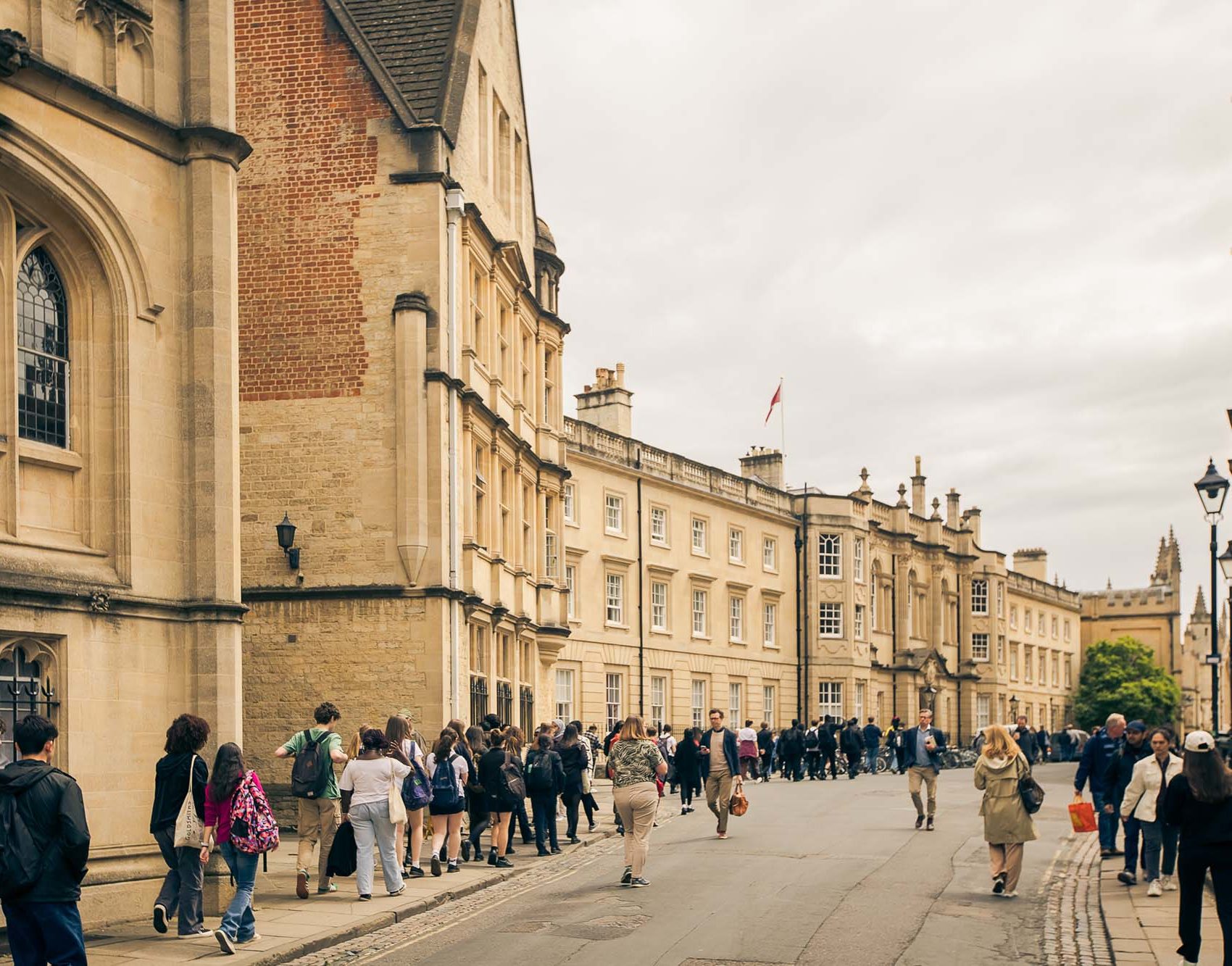 On Catte Street walking towards the Radcliffe Camera
On Catte Street walking towards the Radcliffe Camera
Feedback from Schools in the Catalyst Programme
Careers advice and guidance at the right time can make a profound difference to young people’s lives says Celine Nembhard, the Careers and Enrichment Lead at Deptford Green, an 11-16 comprehensive that forms part of the Lewisham hub. “We ask for feedback after the visit and we find that before they go there our students tend to think that the university is all white, rich and posh and that people won’t look at them, while quite a few mentioned afterwards their surprise that the students were actually diverse in terms of ethnicity. One of the Oxford students told them this year how she had received free school meals and was getting a university bursary on top of her student loan to help with her living costs, and that surprised them,” she says.
Feedback from Deptford Green students showed that most were more likely to apply to university following the visit, she adds. “They said that they had learned about application process, the student loan system and what a university is like, and that is a very good position to be in at their age, still taking their GCSEs,” she says. Written feedback from students described Oxford as “pretty cool” and all agreed the trip was “enjoyable”. Five said that they were “more likely” to apply to university as a result, but two continued to reject the idea on the grounds of cost and student debt.
Colfe’s students also said that they had been surprised by some of the things they saw. Anna, 15, said it helped that last year, before the visit, staff from St Catz had visited Lewisham and led a seminar on higher education. “We went on a bus to Prendergast Ladywell School and it meant that we already knew some people from the other schools and had connections with them, which made the coach journey more fun. The seminar also helped because it started us thinking about careers and university courses and A-level choices,” she said.
“We are starting early so the students don’t mentally close doors to what they want to do in their futures.”
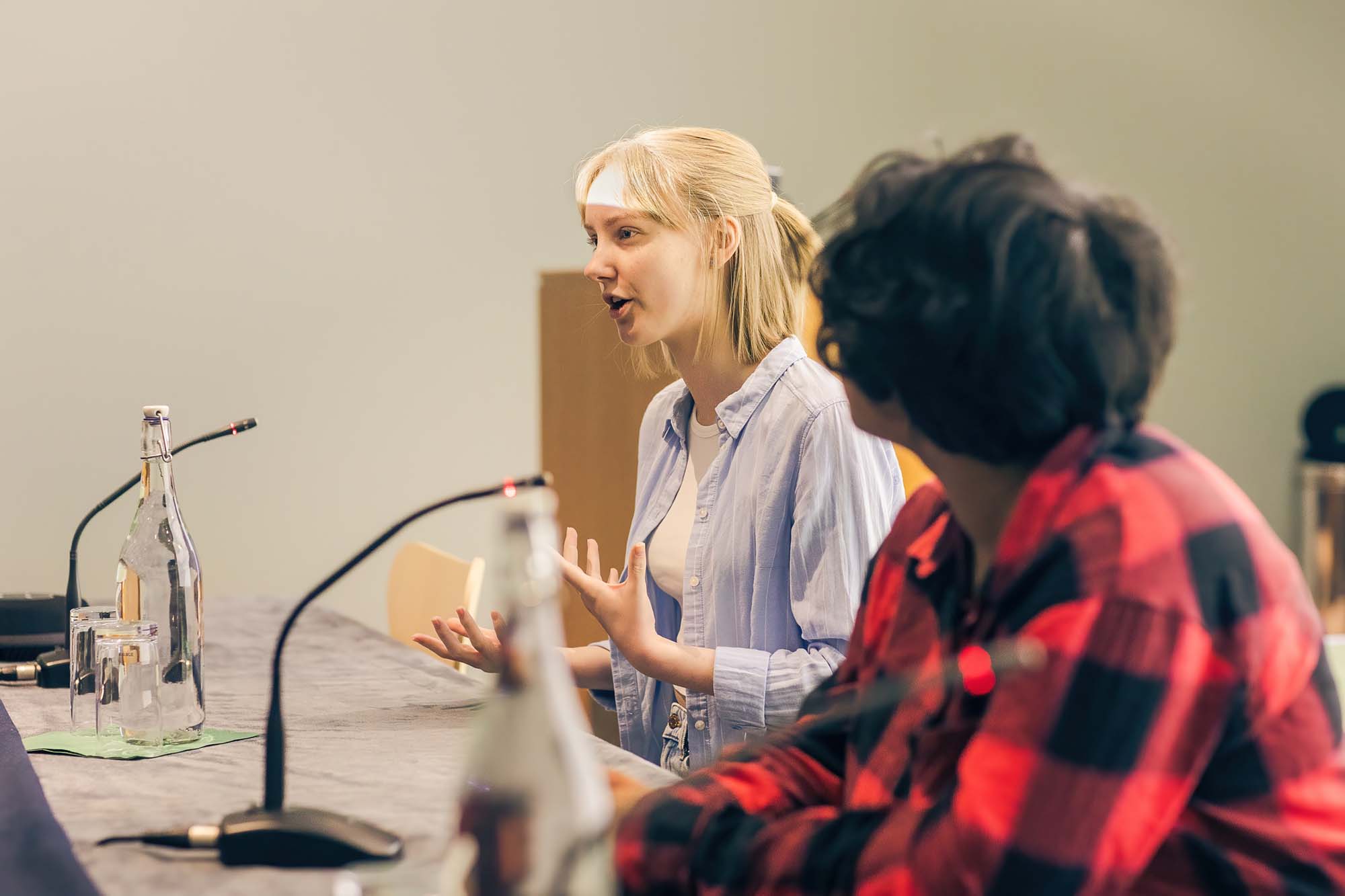 Student ambassadors Anwen and Sami during their QA session
Student ambassadors Anwen and Sami during their QA session
Fellow Colfe’s student Ivan, 15, keeps in touch with students from a neighbouring school he has met through the scheme and, though he comes from a family of university teachers, he was as surprised as other students to find out about Oxford’s small group tutorial system. “It’s something that really stood out to me. The smaller more personalised classes were very interesting; the opportunity to have conversations with professors who know their stuff,” he said. “The seminar we had last year was good because they worked backwards from the jobs we would like to do, to what university course we would need to do and then what A-levels we should take to get on that course and I’m finding that very useful.”
Another enthusiastic participant is Bonus Pastor Catholic College. The Catalyst programme boosts confidence and aspirations especially for students who would be the first in their families to go to university, says Clint Amfo, a maths teacher at the school who accompanied the visit in June. “It was very good to see our students embedded in university life for a day and they loved it,” he says. “They were very excited by the visit and couldn’t believe they were in Oxford. It broke down the misconception that you have to be very rich to go to Oxford or Cambridge,” he added. “On the way back a lot of students said they were interested in applying because of the financial support they could get and they were planning what they could do to get there.”
And there are wider benefits. “Not only does the Catalyst Programme get them thinking about their futures, but it also actually boosts their academic performance in the here and now,” says Manuela Arias, assistant principal at Bonus Pastor. “Students learn first-hand about the variety of courses out there; they don’t all have to be doctors or lawyers or go into business. If you enjoy and study geography it doesn’t have to only lead to a career studying rocks because there are many different jobs out there. The Catalyst Programme engages students to think about their futures, their GCSEs become instantly more relevant to them, and this heightens their commitment to their own learning and ambitions,” she adds.
For the students then, the Oxford visit was a day of surprises, a day to remember, and one that their teachers believe will help to shape the rest of their lives.
READ MORE

Leathersellers’ Scholarships at Colfe's School
Celebrating the long-term success of the Leathersellers’ Scholarships at Colfe’s School.
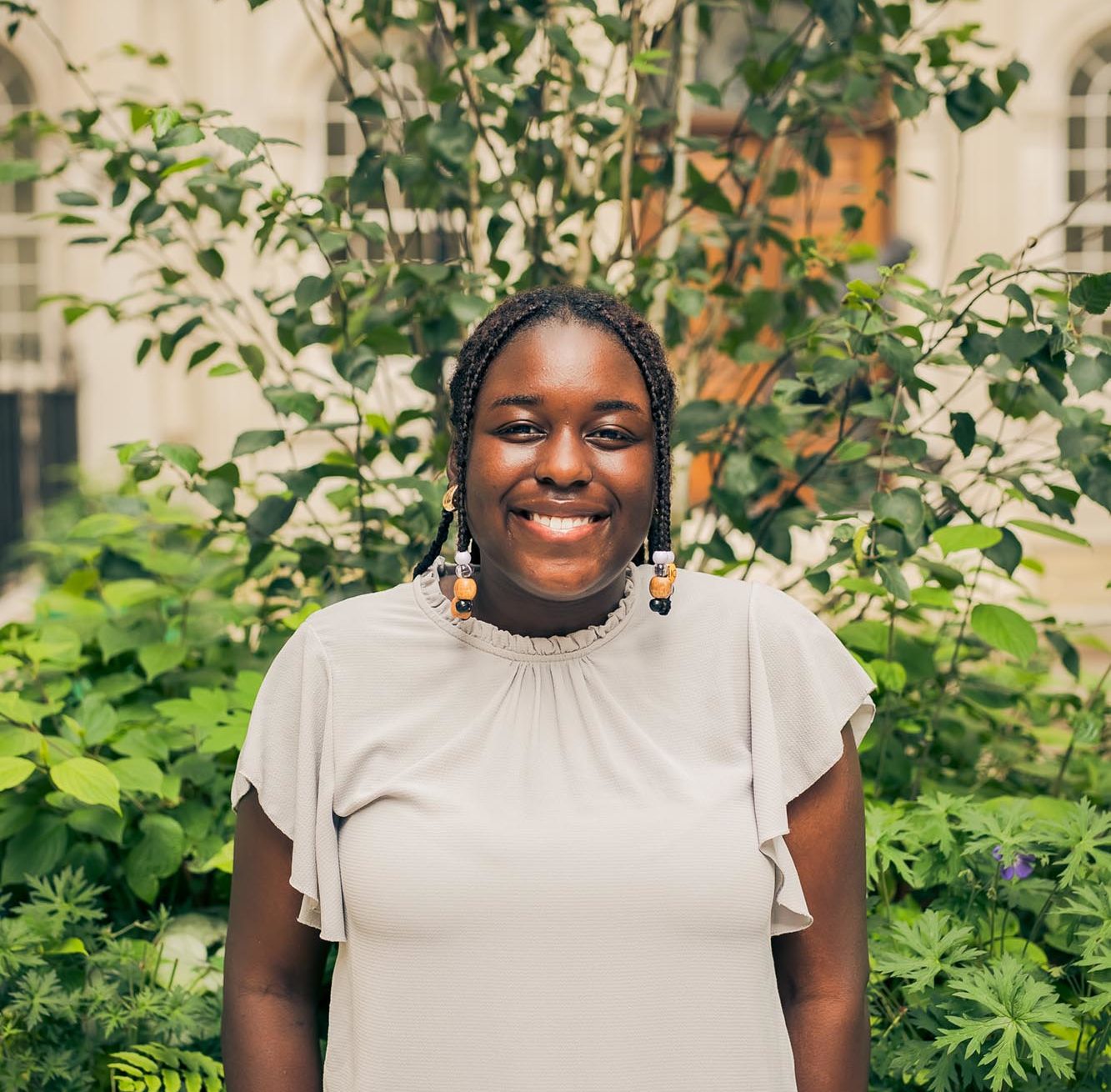
Freedom to Study, Freedom to Make a Difference
How Leathersellers’ Student Grants are helping people to pursue their passions at university and set their course for the future.

Boosting Opportunity at the Leathersellers' Federation of Schools
School led and backed by research a new social mobility project has created the dream job for Learning Mentor, Cherisa Kya-Scott.